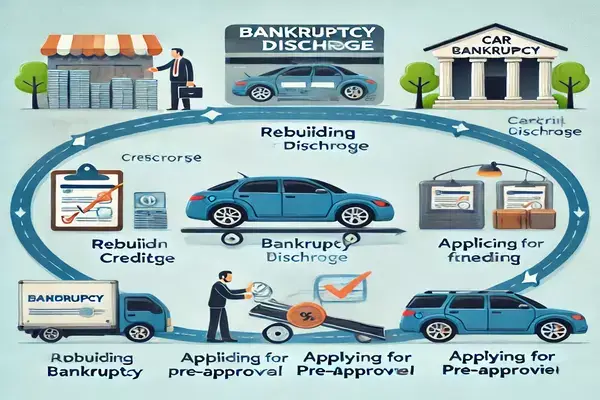
How Do I Teach Myself Personal Finance?
Teaching yourself personal finance is one of the most valuable skills you can learn. What a budget at its core does is help you to better manage your money but also financial independence and peace of mind. This guide will demystify everything you need to know to begin this essential enterprise. You will discover ways to set targets, create budgets, save smartly, and take many extra steps even together with a few basics of investing.
Key Takeaways
- Having specific financial targets helps keep you on track.
- Sound budgeting is the basis of financial success.
- An emergency fund is so vital to your financial well-being.
- What matters most in terms of staying financially healthy is understanding debt and credit.
- Investing over sometimes decades if necessary, even small amounts of money can help build wealth.
Why Understanding Personal Finance Matters
He said that when he explained personal finance, people asked him, “Why should I give a shit? Simple answer — your quality of life is directly related to your financial health. Several studies suggest that consumers who are knowledgeable about personal finance benefit from lower-cost options such as cheaper generic drugs, used cars with fewer defects, and products that retain their value.
The first and most common myth is that personal finance is for rich people! These are actually universal, even if you perhaps have more funds in your pocket thanks to similar well-known individuals. Personal finance is all about making the most of your available funds while staying out of needless debt, and being ready for those life occurrences that you can never anticipate.
One startling statistic from the NCFC states that, on average, someone living in the United States loses $1,634 yearly due to financial illiteracy. Just think of the difference that simply learning some basic skills could make for you! I encourage you to read more about this blog here: What Are the 5 Main Areas of Personal Finance? A Guide to Smart Money Management
How to Set Clear Financial Goals
Before you start budgeting or saving at the pace we’re about to discuss, it’s essential for your financial health that you establish long-term financial goals. Money without a clear goal is much more difficult to manage. If your financial life is a road, then these goals are the map that directs it.
Short-Term vs. Long-Term Goals
Short (within a year) and long-term goals (5 years or beyond)
A full example could be a short-term financial goal such as saving $1,000 or paying off your backward-looking payment credit card. Long-term objectives are more substantial, such as saving for a house or retirement.
Some tips on making your goals more attainable include the following:
- Use keywords: Instead of “I will not go into debt anymore,” say “I will save $200 a month for 12 months.”
- Keep it real: Make sure the goals you set are not unachievable. But focus on something small and then grow your way to the top.
- Set deadlines: Deadlines help keep you accountable. When do you want to reach these goals?
Building a Budget: The Foundation of Financial Success
One fundamental of every good financial plan is to budget. I mean, if your response to me is: How does one teach themselves personal finance? Whether you are a student or an intern, setting up and adhering to a budget is one of the most crucial things to do.
The 50/30/20 Rule
The 50/30/20 rule is one of the most common budgeting methods:
- 50% — Other Basics (housing, groceries, and utilities)
- 30% — Wants (dining out, entertainment, travel)
- 20% — Savings and paying debts
It is one of many tools from which to choose, but you should implement it if the 50/30/20 method does not work seamlessly with your lifestyle, such as an envelope system that helps you determine what zero-based amounts you’ll have in each category.
Budgeting Tools and Apps
Here are the top tools to help you streamline your budgeting process:
- Mint: Aggregates all your spending and categorizes it into budget-friendly charts.
- You Need A Budget (YNAB): Helps allocate every dollar to a job.
- Personal Capital: This lets you see your budget side by side with investment tracking to get a full look at your finances.
Saving for Emergencies and Future Investments
Establishing an Emergency Fund — This is perhaps the most critical item on your personal finance to-do list. Backup funds for emergencies, such as a health crisis or job redundancy, are recommended at between three and six months’ living costs.
Types of Savings Accounts
- High-Yield Savings Account: High-yield savings accounts accrue more interest than a traditional savings account.
- Money Market Account: Offers better interest rates with higher minimum balances.
- Certificates of Deposit (CDs): Similar to a high-yield savings account, but with higher interest rates and less accessibility.
What You Should Know About Saving
You are not just saving for the future but also for something greater than this moment. If you have your emergency fund in place, the next thing to think about is how to build wealth and grow your money over a long period.
Understanding Debt and Credit
Handled correctly, debt can be a valuable asset or an economic albatross. Read on to learn the difference between good debt—i.e. student loans, or a mortgage—and bad debt (high-interest credit cards).
Adjustments for your Credit Rating:
- Pay bills on time: This is one of the most significant factors in your credit score.
- Maintain low credit card balances: Use a maximum of 30% of available credit.
- Check your credit report often for errors or fraud.
The average U.S. FICO score was 714 in 2020, according to Experian, and knowing how to work with credit can help you push your way up to the excellent range.
The Basics of Investing: Growing Your Wealth
After you get your budget in line and have that nice cushion saved for emergencies, it’s time to start working on investing. Yes, it is a frequent misconception that investing is only for the rich, which is not true. You can invest today and start with as little as $100.
Investment Options Introduction
- Stocks: Purchasing shares in a company. This means the reward potential is higher, but so too is the risk.
- Bonds: Think government or corporate loans. Lower risk, lower return.
- Index Funds: A mutual fund designed to mimic a larger index, one of the safest investments you can make.
One of the most powerful mechanisms to build wealth is compound interest—your investments grow over time as they earn interest on their own.
Mastering Financial Discipline and Habits
Knowing—A plan is not enough. Financial success is not about what you know, but how you apply it. This involves being able to follow your budget, monitor your financial progress, and continuously learn new info and techniques.
Creating Better Money Habits – For Life
- Automate your savings: Put it on autopilot by setting an amount to automatically transfer from checking to savings every month.
- Monitor spending: Check your budget periodically to find ways to improve.
- Limit impulse buys: Before making any bigger purchases, always wait 24 hours to decide if it’s truly necessary.
Tracking Your Progress: Regular Financial Reviews
It is not only about setting goals and budgets but also taking the time every month to analyze your financial health. Perform a quick review of your finances each month, then set it and forget it! Ask yourself: Are you saving enough? Is your debt decreasing?
Adjusting Your Financial Plan
As life changes, so should your financial plan. Whether you get a raise or face an unexpected expense, being flexible with your approach will help you stay on track in the long run.
Conclusion
Personal finance is a marathon, not a sprint. When you know your monetary targets, create an effective budget, save for tougher times, and invest in the long term, it’s a great way to take control of your money and be financially secure. What’s next, now that you can teach yourself personal finance? Ready to create a budget or begin investing? Go deeper into financial education and explore more strategies. You’ve got this!
FAQs
- What is the first step in learning personal finance? Start by setting financial goals and creating a budget that suits your lifestyle.
- How much should I save for emergencies? Aim to save three to six months of living expenses in an emergency fund.
- Is it important to invest even if I don’t have much money? Yes, starting small and using compound interest can lead to significant growth over time.
- How can I improve my credit score quickly? Paying your bills on time and reducing credit card balances are two of the fastest ways to improve your score.
- What’s the best way to track my spending? Use budgeting apps like Mint or YNAB to monitor and categorize your expenses.
Learn More About How Do I Teach Myself Personal Finance from makebetterfinance





